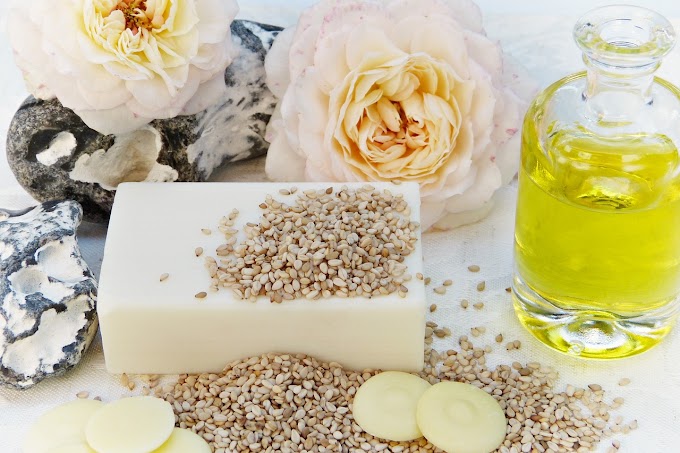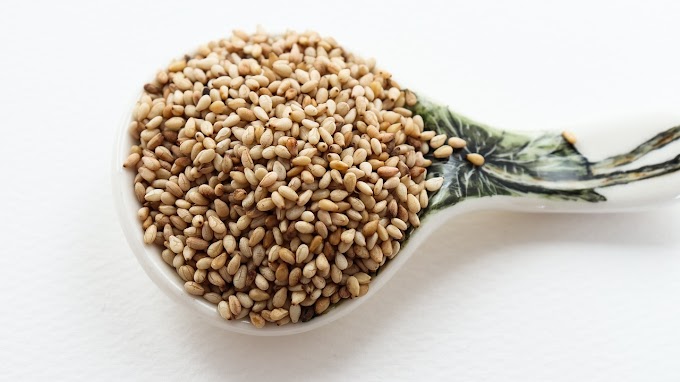Introduction
In a world where the beauty industry constantly evolves, one thing remains unchanged: the importance of effective skincare. Regardless of whether you have dry, oily, combination, or sensitive skin, establishing a well-rounded skincare routine is crucial for achieving and maintaining healthy, radiant skin. This comprehensive guide explores skincare tips that cater to all skin types, guiding you toward a complexion that truly glows.
Identifying Your Skin Type:
Before delving into specific skincare tips, it's essential to identify your skin type. Recognizing whether you have dry, oily, combination, or sensitive skin will help you choose the right products and treatments. Here's a quick overview of each skin type:
Dry Skin: Feels tight, and rough, and may appear flaky or irritated. Requires moisture and may be more prone to fine lines and wrinkles.
Oily Skin: Tends to be glossy and may have enlarged pores. Prone to acne and blackheads due to excess oil production.
Combination Skin: Displays characteristics of both dry and oily skin. Typically, the T-zone (forehead, nose, and chin) is oily, while the cheeks remain dry or normal.
Sensitive Skin: Easily irritated, red, and prone to reactions. Requires gentle, hypoallergenic products to prevent flare-ups.
Now that you've identified your skin type, let's explore universal skincare tips that will help you maintain a healthy complexion, regardless of your skin type.
Cleansing is Key: Proper cleansing forms the foundation of any skincare routine. Use a gentle, sulfate-free cleanser suitable for your skin type to remove dirt, makeup, and excess oil, preventing blackheads and breakouts.
Exfoliate Regularly: Exfoliation aids in removing dead skin cells, promoting cell turnover and a brighter complexion. However, be cautious not to over-exfoliate, as it can strip your skin of its natural oils. Aim to exfoliate 1-3 times a week, depending on your skin type.
Hydration is Essential: Regardless of your skin type, keeping your skin hydrated is crucial. For dry skin, opt for rich, moisturizing creams. Oily skin types should choose lightweight, oil-free moisturizers. Combination skin individuals can use separate products for the T-zone and cheeks. Sensitive skin benefits from fragrance-free, hypoallergenic moisturizers.
Sunscreen is a Must: Protecting your skin from the sun's harmful UV rays is non-negotiable. Apply a broad-spectrum sunscreen with at least SPF 30 daily, especially on cloudy days, to prevent premature aging, sunspots, and skin cancer.
Tailor Your Products: Select products that address your specific skin concerns. For example, incorporate antioxidants like vitamin C for added protection against environmental damage or use retinol for anti-aging benefits. Customizing your routine ensures your skin gets what it needs.
Treat Skin Issues Gently: If you have specific skin concerns such as acne or redness, choose targeted treatments designed for your skin type. Consult with a dermatologist if necessary for personalized advice.
Stay Hydrated and Eat Well: Good skincare goes hand-in-hand with a healthy lifestyle. Drink plenty of water to keep your skin hydrated from the inside out, and maintain a balanced diet rich in fruits, vegetables, and antioxidants.
Use a Weekly Mask: Treat your skin to a weekly mask to address specific concerns. For example, clay masks can help control oiliness, while hydrating masks are perfect for dry skin. Sheet masks are great for a quick hydration boost and can be customized based on your skin's needs.
Practice Stress Management: Believe it or not, stress can affect your skin. High-stress levels can lead to breakouts, increased oil production, and even premature aging. Incorporate stress-reducing techniques like meditation, yoga, or deep breathing exercises into your routine to maintain a healthy complexion.
Be Mindful of Your Diet: What you eat directly reflects on your skin. Foods high in sugar and processed ingredients can exacerbate skin issues, while a diet rich in vitamins, minerals, and antioxidants can promote a glowing complexion. Consider incorporating skin-loving nutrients like berries, fatty fish, and leafy greens into your meals.
Maintain Consistency: Consistency is key in any skincare routine. It's important to use your products on time for them to work, so don't be discouraged if you don't see immediate results. Stick to your regimen and adjust it as needed based on how your skin responds.
Stay Hydrated from the Inside: In addition to applying moisturizers externally, ensure you're staying hydrated from the inside by drinking an adequate amount of water throughout the day. Proper hydration supports the skin's elasticity and overall well-being.
Monitor Your Skin's Response: Pay attention to how your skin reacts to different products. If you notice irritation or breakouts, consider patch-testing new products before applying them to your entire face. This can help you identify potential triggers and prevent skin issues.
Don't Neglect Your Neck and Décolletage: Your skincare routine shouldn't stop at your jawline. The neck and décolletage are often overlooked but are just as vulnerable to signs of aging. Apply your skincare products to these areas as well to maintain a consistent and youthful appearance.
Consult a Professional: If you're unsure about your skin type, experiencing persistent skin issues, or need a personalized skincare plan, don't hesitate to consult a dermatologist. They can provide expert guidance tailored to your unique needs.
Q6: Why is it essential to remove makeup before bedtime?
Dry Skin: Feels tight, and rough, and may appear flaky or irritated. Requires moisture and may be more prone to fine lines and wrinkles.
Oily Skin: Tends to be glossy and may have enlarged pores. Prone to acne and blackheads due to excess oil production.
Combination Skin: Displays characteristics of both dry and oily skin. Typically, the T-zone (forehead, nose, and chin) is oily, while the cheeks remain dry or normal.
Sensitive Skin: Easily irritated, red, and prone to reactions. Requires gentle, hypoallergenic products to prevent flare-ups.
Now that you've identified your skin type, let's explore universal skincare tips that will help you maintain a healthy complexion, regardless of your skin type.
Cleansing is Key: Proper cleansing forms the foundation of any skincare routine. Use a gentle, sulfate-free cleanser suitable for your skin type to remove dirt, makeup, and excess oil, preventing blackheads and breakouts.
Exfoliate Regularly: Exfoliation aids in removing dead skin cells, promoting cell turnover and a brighter complexion. However, be cautious not to over-exfoliate, as it can strip your skin of its natural oils. Aim to exfoliate 1-3 times a week, depending on your skin type.
Hydration is Essential: Regardless of your skin type, keeping your skin hydrated is crucial. For dry skin, opt for rich, moisturizing creams. Oily skin types should choose lightweight, oil-free moisturizers. Combination skin individuals can use separate products for the T-zone and cheeks. Sensitive skin benefits from fragrance-free, hypoallergenic moisturizers.
Sunscreen is a Must: Protecting your skin from the sun's harmful UV rays is non-negotiable. Apply a broad-spectrum sunscreen with at least SPF 30 daily, especially on cloudy days, to prevent premature aging, sunspots, and skin cancer.
Tailor Your Products: Select products that address your specific skin concerns. For example, incorporate antioxidants like vitamin C for added protection against environmental damage or use retinol for anti-aging benefits. Customizing your routine ensures your skin gets what it needs.
Treat Skin Issues Gently: If you have specific skin concerns such as acne or redness, choose targeted treatments designed for your skin type. Consult with a dermatologist if necessary for personalized advice.
Stay Hydrated and Eat Well: Good skincare goes hand-in-hand with a healthy lifestyle. Drink plenty of water to keep your skin hydrated from the inside out, and maintain a balanced diet rich in fruits, vegetables, and antioxidants.

Additional Skincare Tips for All Skin Types:
Remove Makeup Before Bed: Always remove your makeup before bedtime to prevent clogged pores, breakouts, and dull skin. Use a gentle makeup remover or micellar water followed by your regular cleanser for a thorough cleanse.
Use a Weekly Mask: Treat your skin to a weekly mask to address specific concerns. For example, clay masks can help control oiliness, while hydrating masks are perfect for dry skin. Sheet masks are great for a quick hydration boost and can be customized based on your skin's needs.
Practice Stress Management: Believe it or not, stress can affect your skin. High-stress levels can lead to breakouts, increased oil production, and even premature aging. Incorporate stress-reducing techniques like meditation, yoga, or deep breathing exercises into your routine to maintain a healthy complexion.
Be Mindful of Your Diet: What you eat directly reflects on your skin. Foods high in sugar and processed ingredients can exacerbate skin issues, while a diet rich in vitamins, minerals, and antioxidants can promote a glowing complexion. Consider incorporating skin-loving nutrients like berries, fatty fish, and leafy greens into your meals.
Maintain Consistency: Consistency is key in any skincare routine. It's important to use your products on time for them to work, so don't be discouraged if you don't see immediate results. Stick to your regimen and adjust it as needed based on how your skin responds.
Stay Hydrated from the Inside: In addition to applying moisturizers externally, ensure you're staying hydrated from the inside by drinking an adequate amount of water throughout the day. Proper hydration supports the skin's elasticity and overall well-being.
Monitor Your Skin's Response: Pay attention to how your skin reacts to different products. If you notice irritation or breakouts, consider patch-testing new products before applying them to your entire face. This can help you identify potential triggers and prevent skin issues.
Don't Neglect Your Neck and Décolletage: Your skincare routine shouldn't stop at your jawline. The neck and décolletage are often overlooked but are just as vulnerable to signs of aging. Apply your skincare products to these areas as well to maintain a consistent and youthful appearance.
Consult a Professional: If you're unsure about your skin type, experiencing persistent skin issues, or need a personalized skincare plan, don't hesitate to consult a dermatologist. They can provide expert guidance tailored to your unique needs.
Conclusion:
Achieving radiant skin is a journey that requires dedication and consistency. By understanding your skin type and following these universal skincare tips, you can build a personalized routine that caters to your specific needs. Remember, the key to beautiful skin is not just about looking good but feeling confident in your own skin. Embrace these tips, and let your natural beauty shine through!
FAQ's
Q1: Why is it important to identify my skin type before creating a skincare routine?A1: Understanding your skin type helps you select the right products and treatments tailored to your specific needs. Dry, oily, combination, and sensitive skin each require different approaches to achieve optimal results.
Q2: How often should I exfoliate my skin?
Q2: How often should I exfoliate my skin?
A2: Exfoliation frequency depends on your skin type. Generally, aim to exfoliate 1-3 times a week. However, over-exfoliating can strip the skin of natural oils, so it's crucial to find a balance that suits your skin's needs.
Q3: Why is sunscreen essential in a skincare routine?
Q3: Why is sunscreen essential in a skincare routine?
A3: Sunscreen protects your skin from harmful UV rays, preventing premature aging, sunspots, and skin cancer. It is a non-negotiable step in maintaining healthy and radiant skin.
Q4: Can I use the same skincare products for all areas of my face?
Q4: Can I use the same skincare products for all areas of my face?
A4: While some products may be suitable for the entire face, it's advisable to customize your routine. For instance, those with combination skin may need different products for the T-zone and cheeks. Pay attention to your skin's unique requirements.
Q5: How can stress impact my skin?
Q5: How can stress impact my skin?
A5: High-stress levels can lead to breakouts, increased oil production, and premature aging. Incorporating stress-reducing techniques such as meditation and yoga can contribute to a healthier complexion.
Q6: Why is it essential to remove makeup before bedtime?
A6: Sleeping with makeup on can clog pores, leading to breakouts and dull skin. Removing makeup before bedtime ensures a clean canvas for your skincare products to work effectively.
Q7: How can I address specific skin concerns, such as acne or redness?
Q7: How can I address specific skin concerns, such as acne or redness?
A7: Targeted treatments designed for your specific skin type can help address issues like acne or redness. Consulting with a dermatologist for personalized advice is recommended for persistent concerns.
Q8: Is it necessary to apply skincare products to the neck and décolletage?
Q8: Is it necessary to apply skincare products to the neck and décolletage?
A8: Yes, the neck and décolletage are susceptible to signs of aging and should not be neglected. Applying skincare products to these areas helps maintain a consistent and youthful appearance.
Q9: Can my diet affect my skin?
Q9: Can my diet affect my skin?
A9: Absolutely. A diet rich in vitamins, minerals, and antioxidants promotes a glowing complexion. Conversely, foods high in sugar and processed ingredients may worsen skin issues.
Q10: How long does it take to see results from a skincare routine?
Q10: How long does it take to see results from a skincare routine?
A10: Consistency is key, and results may vary. Stick to your skincare regimen and be patient, adjusting as needed based on your skin's response. If concerns persist, consult a dermatologist for professional guidance.







